ARE COSTA RICAN PROPERTY TAXES REALLY THAT MUCH CHEAPER THAN THE U.S?
Frankly, this is one of the best reasons to buy property in Costa Rica! Property taxes (Municipal Taxes) are supposed to be only ¼ of 1% of the declared value: thus for every $100,000, the property tax is supposed to be only $250 ANNUALLY. But incredibly, it’s usually less (except for those in luxury tax zones.) Unfortunately the Costa Rican government is not receiving what they should for property taxes, usually because of pre-registered values and the neighbors pressure to “not rock the boat.” Coincidentally this percentage is about the same when you are considering to buy home-owners insurance, (and some choose not to have home insurance). Be aware that a new luxury tax was approved in the wealthier areas of CR, and levied at about the same one fourth of one percent added on to the original tax, yet, this isn’t well enforced, ASK YOUR ATTORNEY, because the laws change frequently here!
This year the law says that its only for the construction of a home worth more than $234,000 after depreciation. If the home has that value, then the land is added to the amount and the tax is figured from there. IN some cases, this would mean an annual property tax of $2000 of homes worth over $800,000. This tax is administered at the municipal level and can be paid quarterly. The type of property, location and other factors contribute to the calculation of this tax and MUST be shown to be fully paid immediately prior to transferring title.
What About Capital Gains Taxes?
There are new laws since July 1st, 2019 regarding paying taxes for properties that show personal capital gain tax. Please consult an attorney as its not as bad as it seems. Lots of exemptions, like have you lived in the property for any substantial amount of time? …This is another area of law, that changes frequently, and sometimes they get it right!..
Who Pays The Sales Commission?
The most common way is that the Seller pays the commission to the realtor/broker at closing and typically 5% but up to 7% or more!. The Buyer or Purchaser does not have to pay any commission when buying property in Costa Rica, UNLESS you have chosen this method with your Broker, and he acts 100% as a “Buyers Agent” and provides you with a Buyers’-Broker’s Agreement. There are advantages to this strategy (as an honest broker, i am happy to do this) as many times the Seller wants to know exactly how much will go into his pocket, or the Seller thinks because he will never be in Costa Rica again, he will skip out on paying the realtor and their lawyer. Be aware that if the Seller skips out, they may find that the actual sale can be blocked at the Registro Nacional, and thus will lose (or have blocked) 100% of the expected funds, (versus only the normal 5-6% they had previously agreed to pay out.
The Seller is responsible also for a 13% tax on the commission that was paid, (since 2013) and this was in lieu of a “capital gains tax” that the CR government has been trying for years to impose. The sales tax (impuesto de ventas) or value-added tax (VAT) is 13%. ONLY calculated over the real estate commission, not over the sales price of the property. It is always paid by the SELLER, (Ley de Impuesto General sobre las Ventas: Ley 6826, Articles: 1.n – 2.d – 3.c)
Just remember, overall, taxes in Costa Rica are a lot lot cheaper than the U.S. especially for titled beachfront property !!!
Can I Have The Title Of Property In My Own Name?
The decision to have the property that you are buying in Costa Rica in your own personal name or in the name of a corporation is strictly up to you, the Buyer/Purchaser. To put it in the name of a corporation is very common; it can offer benefits of asset protection, anonymity for the actual owner, and makes title transfer easier and these days, a little cheaper.
However since new laws of July 2019, many property purchasers are now putting the title in their own name, and this will save them some money, yearly, especially regarding the either the Active or Inactive Corporate tax! A valid passport for 2-4 representatives (president, vice president, secretary, and treasurer-all can be foreigners) is the only requirement for a foreigner to form a corporation in Costa Rica; the cost ranges from $600-$900 in most cases. More corporation info will be found on this website or costaricalaw.com or other fine attorneys’ websites.
Can I buy or need Title insurance in Costa Rica?
SHORT ANSWER: no, Costa Rica used to have “title insurance providers” (Stewart Title, Chicago Title companies and some others) but these companies were ruled to be unnecessary and illegal about 2011. The success of Costa Rica’s new Registro Nacional with its’ improved and fully digital changeover starting in 1997, meant that all attorneys, could use this modern Costa Rican Registro Nacional system faster and more accurately for their clients to confirm that a property has clean title with proper ownership. The main Registro Nacional is located in Zapote, San Jose with many branches throughout Costa Rica. In the event that adjustments are needed for any given title, these alterations must be recorded at any Registro Nacional. The Public Registry report (Informe Registral) that most anybody can now access, provides detailed information on the property, including the name of the title holder, boundary lines, tax appraisal, liens, mortgages, recorded easements, and other recorded instruments that would affect title.
Of course for accurate Due Diligence, the corporations that almost always own the property are thoroughly investigated in a different government entity. Please note: Stewart Title used to offer title insurance in Costa Rica, and stopped around 2011. We highly applaud and recommend their evolvement into a legitimate excellent Escrow services provider STLA, Secure Title Latin America https://stla.net/offices/secure-title-latin-america-costa-rica-office/ This is who most intelligent lawyers/realtors are using to protect their Buyers’ funds because it’s not easy to get an Escrow account to be approved, (proving that all funds are from legitimate sources). These days in 2024 there are a few new U.S. based Escrow companies, that have provided a service for those needing a U.S. escrow.
CR Beach protects you with all Escrow services because: NO BUYERS’ FUNDS can be released without the Buyers’ signed approval of the closing statement. STLA has been great and we are so thrilled that they have added a small branch office in Jaco!
Do I Need To Have Residency To Purchase Property?
REMEMBER, YOU CAN NOW TELL THE AIRLINES OR THE CUSTOMS OFFICERS YOU’RE STAYING FOR THE NEW 180 DAYS VISA! (HOWEVER, although you can stay for 180 days, your foreign drivers’ license is only good for ahem, 90 DAYS. Yes this still is true, but could be changed we hope, pretty soon!….
No, it is not necessary to have residency to buy property in Costa Rica. You can buy with your tourist status. Living here is another matter, as a foreigner and tourist you must leave the country for 72 hours once every 3 months or 6 months now, to renew your legal status in Costa Rica.
Some of the foreigners without residency enjoy traveling and visiting Nicaragua or Panama for a couple of days, or go back home for a short trip, or discover more of Central America in order to renew their visa. There are many forms of residency available, we can help you contact an attorney who can assist you in this.
How Can I Get Residency In Costa Rica?
There are several ways to get residency here, with different types, such as Pensionado, Rentista or Inversionista. It depends on your individual situation; we recommend consulting 2 different lawyers before you decide!
For all residency requirements and updates please check first with your lawyer! The easiest? way is to fall in love and marry a Costa Rican. They recently have changed the divorce laws, so now, its no longer 3 years before one can file for the divorce.
The government has cracked down a little on obvious “fake” marriages, so if you are serious, we suggest meeting your “soul mate” thru the few reputable and legit Costa Rican “introductory services”.
Residency requirements include paying the “Caja.” When you apply for CR residency you are required to join the “CAJA” and pay into the government health care system. The fee is determined by your monthly income minus expenses, your age, and how happy they are that day. Sometimes it’s a very reasonable price monthly, and sometimes it’s not, especially when you have a medical emergency, and would rather not spend hours waiting in a “U.S. style county medical center.” In my 30 years here, there are more options than ever regarding paying for private medical insurance!
I usually pay to see private doctors who are fairly inexpensive as compared to costs in many U.S. areas, and Costa Rica is quite famous for international travelers to get excellent medical and dental care.
Dental Tourism is very popular here, it’s a hot topic for foreign residents that live here!
These days there are more options than ever for private medical insurance. Ask Jeff for referrals to those proven reliable medical insurance agents!
What Are The Regulations Regarding “Zona Maritima or “Concession zone” Beach Front Properties?
A very controversial subject, as many realtors won’t tell you upfront if its in the Concession Zone or in (Spanish- Zona Maritima.) When buying property located on or very close to Costa Rica’s beaches, you should be aware of the following: In ALL of COSTA RICA, the first 50 meters (for linear feet x 3.28=164 feet) from the mean tide (average tide mark) CANNOT LEGALLY be built on by anybody, anywhere in the country, as it is considered public beach. This law makes Costa Rica pretty special! An estimated 93-95% of Costa Rican beaches fall under the category known as the Maritime Zone Law, (Zona Maritima). Thus to the first 50 meters or 164 feet add another 150 meters or 492 feet. This 150 meters mark is subject to the Maritime Zone Law and the ICT administers the granting of Concessions. There are some disputed properties whose owners claim that since the property was registered prior to 1973, it certainly must have full title and can be transferred as such and called “titled to the 50 meter line”. Ask your lawyer to explain the difference between “concession lands vs Possession lands!
Concession property operates as a leasehold agreement with the Costa Rican ICT, (Instituto Costarricense de Turismo) and the local Municipality and we strongly urge caution when purchasing this type of property.
We at CR Beach will sell you “concession land” ONLY after you show us a letter, email, or quick note from your attorney stating that you have been advised about any potential risks.
Restrictions when approving a concession on public land:
Article 47 of the Maritime-Terrestrial Law establishes, in general, the people or companies that cannot receive a concession:
– Foreigners who haven’t resided in the country for at least five years
– Companies (sociedades anónimas) with bearer shares
– Companies or entities domiciled abroad
– Entities founded in the country by foreigners
– Entities whose shares, quotas or capital (more than 50 percent) are in hands of foreigners. In other words, you as a foreign investor CANNOT OWN MORE THAN 49% OF THE CORPORATION THAT PURCHASES THE CONCESSION LAND! This is extremely important!
The management of a concession requires the work of legal experts: before applying to a maritime zone concession, a rigorous research of the land is required, especially in areas without a Plano Regulator included in the Law 6043. Besides, all the Costa Rican municipalities handle a different regulatory plan, so the paperwork to apply for each concession can vary.
The fact is that after having lived in Costa Rica for over 30 years, i have witnessed major multi-million dollar hotel projects that really are built on concession land throughout Costa Rica, (4 Seasons, Hilton, W hotels, Riu 2 hotels) without any problems, thus it must not be that risky if you have deep pockets for lawyers and others.
All in all, an investment in shoreline property regulated by the Maritime Zoning Law requires extra caution and thorough investigation. Like how many nights can an owner of a concession zone condo be allowed to stay in their condo during a calender year? Yes that is a part of the ICT regulations!
There are ambiguities that exist within the written law, so that as regulations are created and amended, rights to property may also change, so remember your rights are not as well respected when compared to major hotel chains who received double the length of concession zone time limits! I have seen the ICT take away 500m2 of beachfront from a small hotel in 2010, so heed my warnings!
Even if you get a concession, there are no guarantees that the concessions will be renewed or that the price of the concession or the yearly canon will be within reason. The fact remains that if you are ‘’BUYING” CONCESSION LAND, you are not actually purchasing property, you are LEASING IT, and your
money is put into a more risky situation than most will accept!
Jeff Fisher
Email: jeff@crbeach.com
Owner-Broker CR Beach Investment Real Estate, Cell Phone: USE WhatsApp:+1 (506) 8388-5055 )OFFICE NUMBER +011 (506) 4700-1010
Jaco, Garabito, Puntarenas, Costa Rica 611012023 International Realtor ® Cert.Membership #061212737
Costa Rican Real Estate Member since 2004


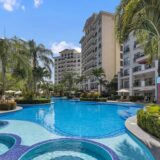



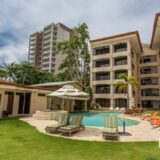

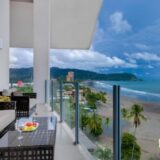
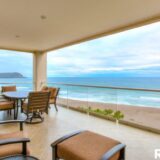



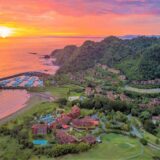
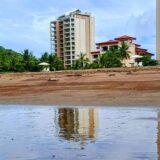
 Sending...
Sending...